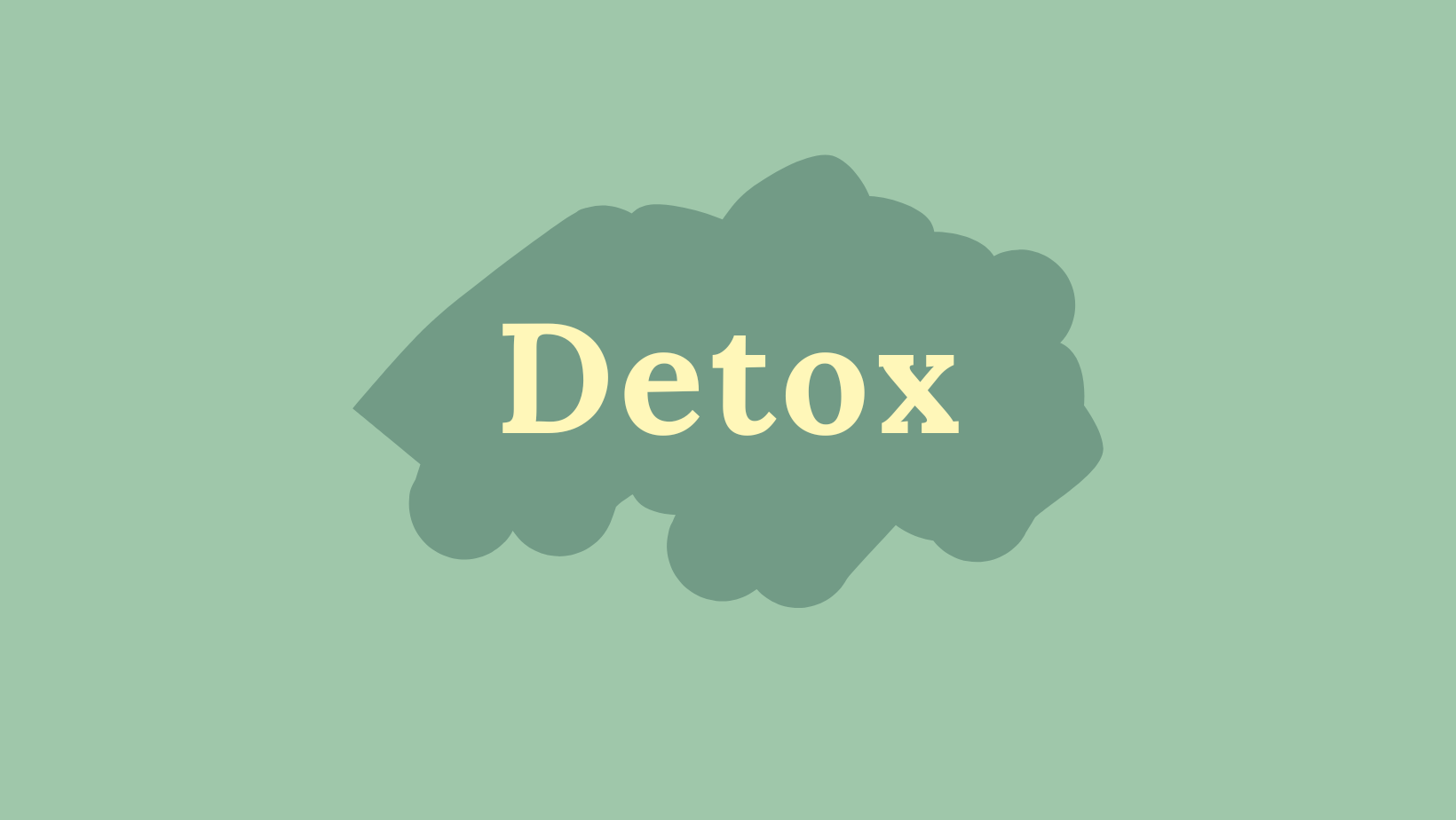Detox and Cleansing for Women’s Health: What You Really Need to Know

Have you ever been tempted by the promise of a quick detox or cleanse? Whether it’s after the holidays, during a stressful week, or in pursuit of better energy, detox trends are everywhere—especially for women. From promises of glowing skin to balancing hormones, it’s easy to feel like a cleanse is the solution to all your health goals.
I’ve never done a detox. But when a friend invited me to try one, I was curious. Not because I felt the need to cleanse or reset, but to see if it was really as “cleansing, hard, and rejuvenating” as people claim.
It was a 5-day detox, and honestly, the timing couldn’t have been worse—I’d caught a cold just a few days before it started. But if you know me, you know I rarely say no to a health challenge. So, I went for it.
But what do detoxes really do? What's the science behind them? And how can women can truly support their health?
The Detox Craze—Why Women Are the Target
Detoxes and cleanses are often marketed as solutions for weight loss, bloating, hormonal imbalances, and even postpartum recovery. But behind these promises are often quick fixes that aren’t sustainable—and may even harm your health.
Here’s the truth: your liver, kidneys, skin, and gut are already working 24/7 to detoxify your body. No juice cleanse or magic tea will “reset” them. What they need is proper support, not extreme measures.
The Do's and Dont's of Detox
Detox diets often cut out certain foods and substances to “reset” the body. While some eliminations may feel drastic, they aim to reduce inflammation, digestive discomfort, and unnecessary strain on your detox organs.
Here are the top culprits targeted in detox plans:
- Caffeine: Coffee, energy drinks, and even green tea can be tough to give up but are believed to overstimulate the nervous system.
- Refined Sugar: A key contributor to energy crashes and blood sugar spikes.
- Alcohol: Eliminated to reduce liver strain and promote hydration.
- Processed Foods: Think packaged snacks, frozen meals, and anything with artificial preservatives.
- Dairy and Gluten: Often removed to identify sensitivities or minimize bloating.
- Fats and Oils: Unhealthy trans fats and refined oils, such as margarine or fried foods, are a no-go.
Sound challenging? It is, for most people. Caffeine withdrawal headaches, sugar cravings, and finding alternatives to processed foods can make this part of detoxing feel like a marathon
How did I experience it: Because we already cook a lot at home and I don’t drink coffee daily, most of the detox wasn’t too challenging—except for the day after my son decided to party from 2:00 to 4:30 a.m. Sleep-deprived and caffeine-free was not the vibe!
The Science of Detoxification for Women
Your body’s natural detox system is incredible. The liver breaks down harmful substances, your kidneys flush out waste, and your gut eliminates what’s not needed. For women, hormonal changes (like during your cycle, pregnancy, or menopause) can influence how you feel—but they don’t require a trendy cleanse.
Support your natural detox system with:
- Hydration: Drink ENOUGH water to help your kidneys flush out waste. (I am pretty confident that you can drink more than you actually do right now)
- Fiber: Whole foods like veggies, fruits, and legumes keep digestion on track.
- Rest: Quality sleep is when your body repairs and regenerates.

A Real Detox Plan That Works
Instead of quick fixes, focus on these sustainable habits to support your body and hormones:
- Liver-loving foods: Add leafy greens, citrus, and cruciferous vegetables.
- Movement: Gentle exercise (like yoga or walking) helps with lymphatic drainage.
- Stress management: Chronic stress impacts your detox systems—try deep breathing or mindfulness.
- Gut support: Include probiotics (yogurt, fermented foods) and prebiotics (onions, garlic).
For many women, giving up caffeine is the hardest part of a detox, and may come with headaches. Those morning cups of coffee can feel non-negotiable! Here’s how to make the transition easier:
- Wean Gradually: Reduce your caffeine intake over a few days to avoid withdrawal headaches.
- Try Alternatives: Sip on herbal teas or chicory root “coffee” for a warm and comforting drink.
- Focus on Energy-Supporting Foods: Add magnesium-rich dark leafy greens and vitamin B-packed nuts and seeds to help combat fatigue naturally.
The Bottom Line:
I agree: a detox can be a nice way to kickstart and incorporate healthy habits, but it doesn't require fancy juices, or meal plans.
Your body knows how to detox—it just needs your support, not extreme trends. Many of the foods allowed can spike your glucose levels, like beans, white rice and potatoes. It is the perfect example that detoxes are not one-size-fits-all and definitely shouldn’t be viewed as long-term diets.
Generally speaking, it's about cutting substances like caffeine. By focusing on hydration, nutrition, and movement, you’ll feel better and healthier in the long term.
Here’s to trusting your body and feeling your best.
